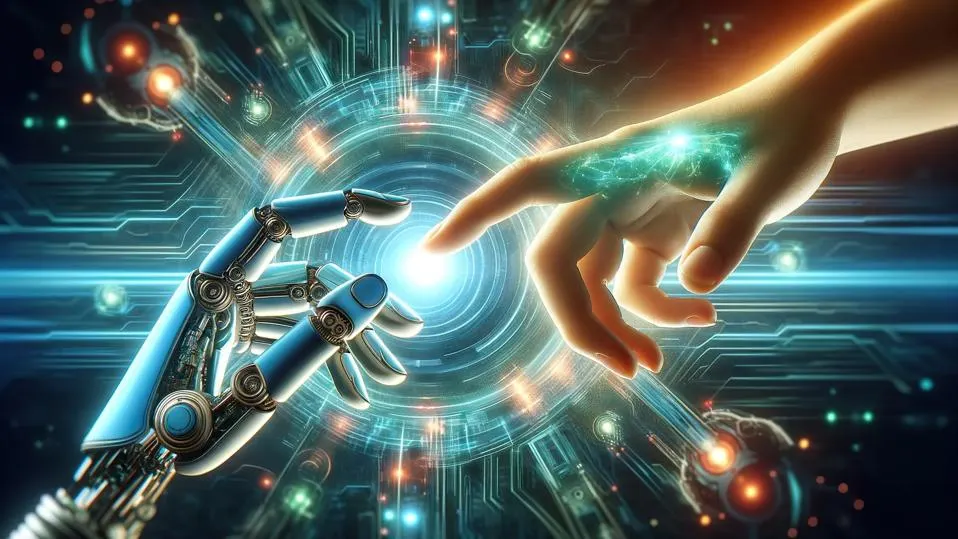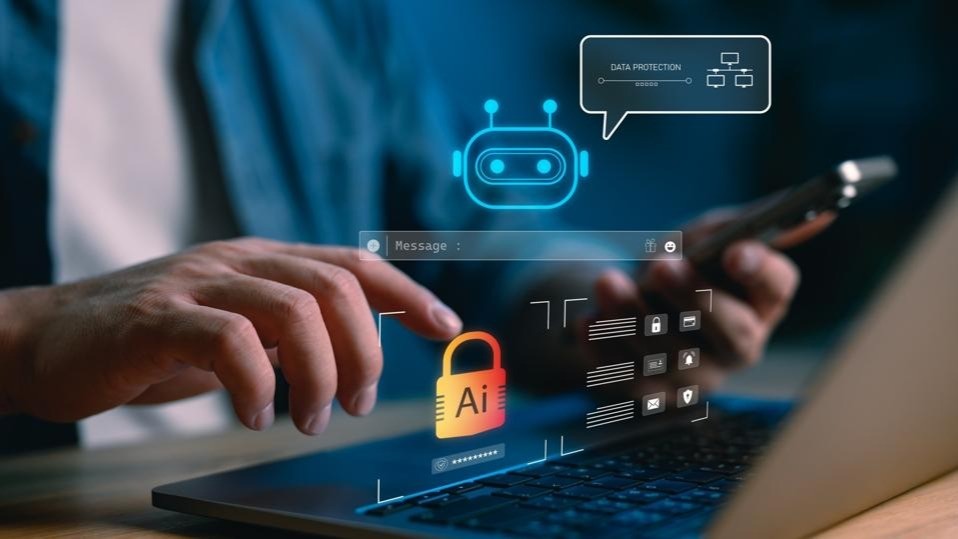Where Will Artificial Intelligence Take Us In The Future?
27 August 2024
Just a few years back, if you had been told that by 2024, you would be able to have a conversation with a computer that would seem almost completely human, would you have believed it?
So what do you think AI will be capable of in ten, twenty or even fifty years’ time?
Of course, it’s impossible to predict for sure – but it seems a fairly safe bet that many things that seem entirely impossible today will be a part of everyday life.
By now, it’s clear that AI is the great breakthrough technology of our times. And as with other breakthrough technologies – fire, steam power, electricity, computing – now it exists, it is only going to continue to evolve and become more capable.
However, one unique feature of AI is its ability to improve itself. As AI helps create more advanced AI, I believe progress will accelerate in ways that we haven’t previously seen.
So, let’s take a look at where this could go. Of course, these are really just ideas rather than predictions, but it’s fun to speculate. So get ready for a trip into the amazing, automated and wonderful (or perhaps not always so wonderful) world of the future.

Future AI Milestones
Futurists predict that the evolution of AI will be marked by a number of significant milestones. Each one will represent a giant leap forward in the capabilities of machine intelligence, as well as the challenges and risks it poses. While we can’t be sure exactly when they will happen, this is (maybe) the order in which we can expect them to arrive.
AGI
AGI stands for artificial general intelligence and refers to machines that are able to apply their knowledge and learning ability to a wide range of tasks. Most AI today is "narrow" or "specialized" and designed for specific tasks. True generalized AI will have the capacity to think, act and behave far more closely to the way we do across tasks involving creativity and complex problem-solving.
Quantum AI
This is about the convergence of quantum physics, which deals with particles at a sub-atomic level, and AI. Quantum computing is in its infancy today but can already complete some computational tasks up to 100 million times faster than “classical” computing. In the future, it will be possible to use it to power AI algorithms, supercharging their ability to process huge datasets and solve complex problems like optimization and cryptography.
The Singularity
This is a hypothetical point in the future where AI surpasses human intelligence and begins to improve itself autonomously and exponentially. The results of this are difficult to predict, as it may have very different ideas about the way it should evolve and the decisions it should make than we do.
Consciousness?
The big one is machines that are so sophisticated that they possess self-awareness and experience reality in the same way as humans. Of course, this is highly philosophical, and some believe it will never truly happen or that we won't be able to tell even if it does. Insect brains, after all, are in many ways more complex than the most sophisticated current AI, and we still aren’t sure whether they’re conscious or not. However, if it does, it will open a whole new ethical can of worms for society to deal with.
Glimpses Of The Future
Okay – now we’ve got a rough roadmap in place. Let’s jump into the time machine and take a look at what this could mean for the way we live in the mid-to-distant future.
Ten Years From Now
In 2034, Tom, a 45-year-old with a family history of heart disease, uses an AI health assistant implanted under his skin to monitor his vital signs and nutrient levels, providing early warnings and personalized health recommendations based on his genetic makeup. At this point in time, healthcare has become more preventative, helping everyone live healthier lives and hugely reducing the societal cost of sickness.
Twenty Years From Now
In 2044, Tom’s daughter Maria has just graduated and has begun working as a climate engineer. Her primary task is to mitigate the impact of climate change across the globe, and to do this, she leans heavily on AI technology to monitor, predict and manage environmental conditions. Her work is highly strategic, involving implementing AI solutions and collaborating with other human professionals to identify threats and challenges further into the future. She doesn’t have to worry about the family history of heart disease, as thanks to advances in AI and biotechnology, the genetic fault that plagued her ancestors was identified and corrected before she was born.
Fifty Years From Now
Carlos is a citizen of a sprawling megacity in the year 2074. Everything he does is monitored and analyzed by machines to ensure he’s sticking to the strict rules that have become necessary to both maintain law and order and ensure compliance with environmental regulations. Data from surveillance cameras, online activity feeds and personal tracking devices are used to track our energy use, waste generation and carbon footprint. All of this is analyzed by AI algorithms, which then award good citizens credits that can be spent on rationed food items or travel permits. Bad citizens face having their luxuries and basic freedoms heavily restricted. It’s a dystopian nightmare.
Seventy Years From Now
Welcome to the post-scarcity economy - the age of plenty. Breakthroughs by self-propagating machine intelligence have solved society's biggest challenges. Aiko, reaching adulthood as we approach the 22nd century, will never know poverty or lack access to food, shelter, and healthcare. Automated manufacturing and 3D printing have drastically reduced the cost of producing all the items we need. AI-managed agriculture ensures no one goes hungry. Most importantly, she will never have to work—robots manage the industry and economy, freeing humans to spend their lives indulging in creative pastimes and leisure pursuits.
One Hundred Years From Now
Nova is one of the early residents of humanity’s first permanent Martian colony. Intelligent, lifelike robots are a part of everyday life, carrying out physical labor as well as acting as companions and personal assistants. Thanks to her neural interface, Nova has direct access to powerful AI technology that boosts her cognitive abilities, making her far smarter than her ancestors of 100 years prior. She will also live far longer thanks to biotechnology developed by AI researchers, which will significantly extend her lifespan and eliminate almost all the risk of illness. Humans are just starting to reach for the stars - but they already know that they aren’t the only intelligent entities in the universe.
But Seriously
Okay, so obviously, this all possibly bears closer relation to science fiction than a serious attempt at predicting the future. But, as I mentioned back at the start, wouldn’t many of the AI tools we have here in 2024 have seemed pretty sci-fi just a few short years ago?
As we move into the future, one thing I can predict with certainty is that the rapid pace of technology-driven change will break down the barriers between the fictional and the real. Many ideas that seem far-fetched today will likely be mundane reality for our children or grandchildren. After all, as well as entertaining us, isn’t the job of great science fiction to help us think about the ethical and societal challenges that may lie ahead?
Self-aware robots, AI-powered immortality, an end to sickness, inequality and poverty, or a solution to the climate catastrophe facing our planet. Thanks to AI, all of these are possibilities. And I, for one, am certainly looking forward to finding out what will really happen next.
Related Articles
The Two-Tier AI Economy: Why Half Of Companies Are Being Left Behind And How To Close The Gap
By now, “smart” versions exist of just about every home appliance, gadget and gizmos we can think of. However, manufacturers continue[...]
5 AI-Era Skills Mistakes That Will Cost Your Business Millions In 2026
By now, “smart” versions exist of just about every home appliance, gadget and gizmos we can think of. However, manufacturers continue[...]
Dreamforce 2025 Proved The Agentic Enterprise Has Arrived
By now, “smart” versions exist of just about every home appliance, gadget and gizmos we can think of. However, manufacturers continue[...]
AI Chatbots Are Quietly Creating A Privacy Nightmare
By now, “smart” versions exist of just about every home appliance, gadget and gizmos we can think of. However, manufacturers continue[...]
What Is Zero Click And Why Is It Turning Marketing On Its Head?
By now, “smart” versions exist of just about every home appliance, gadget and gizmos we can think of. However, manufacturers continue[...]
How Globant Is Reinventing Professional Services With AI Pods And Subscription Models
By now, “smart” versions exist of just about every home appliance, gadget and gizmos we can think of. However, manufacturers continue[...]
Sign up to Stay in Touch!
Bernard Marr is a world-renowned futurist, influencer and thought leader in the fields of business and technology, with a passion for using technology for the good of humanity.
He is a best-selling author of over 20 books, writes a regular column for Forbes and advises and coaches many of the world’s best-known organisations.
He has a combined following of 4 million people across his social media channels and newsletters and was ranked by LinkedIn as one of the top 5 business influencers in the world.
Bernard’s latest book is ‘Generative AI in Practice’.










Social Media